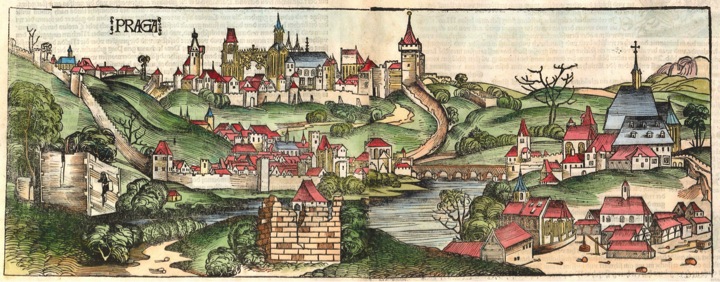Oral History Training School in Prague

GRADE Oral History Training School in Prague
August 28–29, 2025
Institute of Communication Studies and Journalism (ICSJ), Charles University
Smetanovo nábřeží 6, Praha 1 110 00 Czech Republic (Hollar building)
Virtual tour: https://my.matterport.com/show/?m=ZsBQeDLuK2P
Practical info: 2025 COST Event Prague Quick Guide
Meeting Type: Hybrid
Main Organizer: Vojtěch Straka (herniarchiv.cz)
Overview
The 2nd GRADE Training School will focus on using oral history to collect stories about the history of creative computing. The goal is to teach practical skills on how to use oral history methods, with a special focus on certain project objectives (T 1.2, 1.3, 2.2, 2.3, and 2.4 *). This training is designed for young researchers and innovators who want to improve their hands-on knowledge in this field. It’s especially aimed at early-career academics from ITC countries, but it is also open to any Action member with a passion for history, including hobbyist historians.
Participants will learn how to implement oral history methods as a research and preservation practice in the context of creative computing cultures heritage. Participants will learn how to implement oral history methods as tools for research and preservation in the context of creative computing cultural heritage. The Training School will emphasize introductory and practical skills, such as conducting semi-structured interviews both in person and online. The training will involve conducting interviews with invited English-speaking narrators who participated in the development of creative computing in Europe.
* Description of the tasks and deliverables can be found in the Memorandum of Understanding.
Program
Thursday 28/08/25
9:00-10:00 Registration/Coffee and snacks
Location: Auditorium (hybrid segments marked in blue)
10:00 -10:55 Oral history theory 101 – Maria B. Garda and Laine Nooney
10:55 – 11:00 Short break
11:00 – 11:30 “On Footwork: How to Get People Talking in a Town that Wants to Forget” – Laine Nooney
11:30-12:00 Discussion/Q&A
12-13:30 Lunch break – Restaurant info: 2025 COST Event Prague Quick Guide
13:30-14:00 Networking coffee
Location: Small rooms (3) in groups of 8-10 ppl
14:00-16:00 Hands on training
At the beginning of this segment, the trainers will introduce consent forms and discuss them briefly. After being split into smaller groups, participants will be also able to collaborate on the milestone questions for the interview, together with the selected trainer and narrator.
Room 1 Machinima (camera/voice recorder)
Narrator Chantal Harvey (https://chantalharvey.nl/)
Room 2 Demoscene/Digital art (camera/voice recorder)
Narrator Bryn “Canmom” Dickinson (https://canmom.art/)
Room 3 Demoscene (Zoom)
Narrator Anna “Chunna” Zdrahal (https://demozoo.org/sceners/11583/)
16:00-16:30 Coffee break
Location: Auditorium
16:30-17:00 Summary and reflection
19:00 Informal get-together Info: 2025 COST Event Prague Quick Guide
Friday 29/08/25
9:30-10:00 Welcome coffee and snacks
10:00 -10:30 Tall tales and murky memories in historiography of digital games – Jaroslav Švelch
10:30 – 12:00 Discussing previous day interviews (30 min per interview)
12-13:30 Lunch break
13:30-14:00 Networking coffee
Location: Small rooms (3-4), in groups of 6-8 ppl
14:00-16:00 Hands on training
In this segment, the participants will have an opportunity to gain more practice in recording interviews, for example interviewing each other on their own personal creative computing histories. There will be some professional equipment available but we strongly recommend you also use your own phone/tablet/laptop, as in the end this is a tool you might use most often.
16:00-16:30 Coffee break
Location: Auditorium
16:30-17:00 Summary and reflection
In this segment, we briefly discuss the long-term lifecycle of the oral history interview (i.e. transcription, archiving, repository upload) and next move to final
19:00 Informal get-together Info: 2025 COST Event Prague Quick Guide
Resources
If you want to familiarize yourself with the topic beforehand, you can check out the resources available at the International Oral History Association (IOHA) website. Among other things, you can find there a directory of other – often nationally focused – oral history associations (many in local languages), for example in Czech: http://www.coha.cz/.
- Introduction to Lynn Abrams’ Oral History Theory (2010)
The introductory lecture will be in big part based on Lynn Abrams’ work, especially her book Oral History Theory, 2nd ed. (2016). If you don’t have access to this book, you can read the introduction to the 1st edition (largely unchanged), available as a Preview PDF on the publisher’s site.